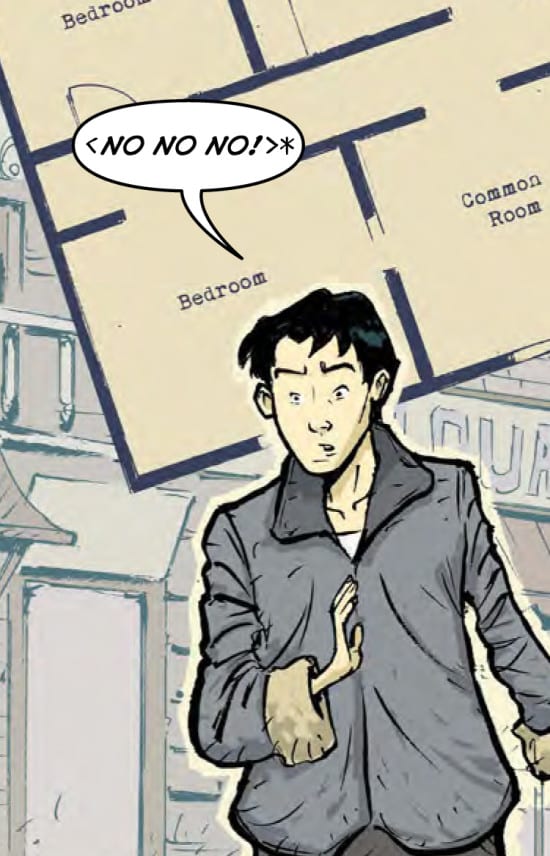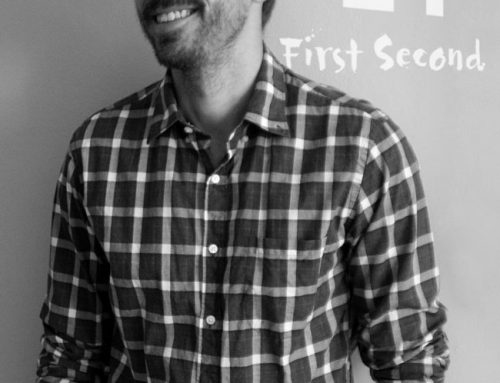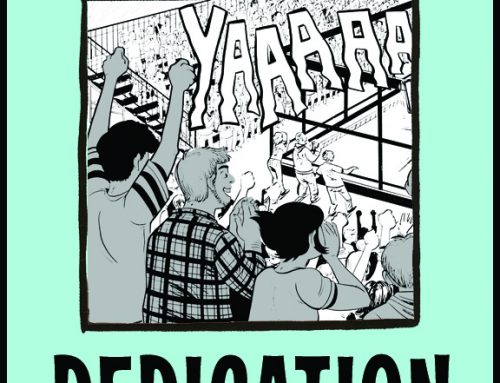test heading
(from The Shadow Hero, by Gene Luen Yang and Sonny Liew)
It can be very difficult to say no to your publisher.
After all, they’re paying you money AND publishing your book. And clearly they don’t think the things they’re asking you are crazy, or they wouldn’t be asking you them (or at least they’d be prefacing them with ‘this might sound crazy, but is there any chance. . . .’).
However, as an author, sometimes you do have to say no — for the sake of your wallet, your family, or even your sanity.
Here’s the first thing to know about this: publishers get told no all the time. Seriously, you guys: all the time. Authors are always e-mailing us to say no, they can’t turn their book in on the date we want it; no, they don’t like our cover direction ideas; no, they’re not comfortable doing interviews about their books; no, they can’t get X person to blurb their book. Publishers are used to authors saying no to them; saying no to your publisher doesn’t have to ruin your relationship. In 99.9% of occurrences, it will not!
And here’s the second thing: say no as soon as you can. If you have agoraphobia and can’t do an author tour, your publisher can work with that. But the time to tell them is when they call or e-mail and ask you about doing an author tour — not the day before you’re supposed to get on the plane. Publishers are pretty flexible, and there are a variety of ways to get a book from concept to publication. Them knowing about any issues or concerns you have any being able to plan for them beforehand is essential to making a book a success.
Here’s the third thing: try not to say ‘no’ frivolously. If you’re seriously uncomfortable with something that your publisher is asking you to do, tell them no — and explain your problem with the situation. The last thing a publisher wants to do to an author is make their life harder than it needs to be. However, there’s a flip side to this, and that is: don’t just say no because you haven’t had your morning cup of coffee yet. If your publisher is asking you to do something relatively serious (turn your book in earlier than planned! consider a cover direction you have reservations about! be a guest of honor at a festival!), they probably have a good reason for it. Try to understand their point of view — and if you need more information or clarification to make your decision, ask them about it.
And here’s the fourth thing: be polite. (Most) publishers aren’t evil! They aren’t asking for something because they’re trying to screw you or your book — if a request from a publisher is making you feel upset, it’s likely that there’s been some sort of misunderstanding. If your publisher asks you something that you have to say no to, ‘to hell with you — I hate you!’ is probably not the best response; neither is treating them like you just learned they’re a serial murderer. Explain yourself; be apologetic (even if you’re really not). Maybe even try getting on the phone instead of e-mailing. Your publisher is an expert in their field — maybe there are factors that are causing them to make this request that you don’t understand or know about. Maybe they don’t understand your concern.
Here’s the last thing: sometimes, your publisher may say ‘no’ right back to you. In some cases, the thing your publisher is asking is absolutely essential to publishing your book well. For example, if we write someone the e-mail — ‘Hi Author! Thanks for the design files you turned in — this art is looking fantastic. But I see that these are laid out so that the dimensions of the book are 12 by 18 inches, instead of the 6 x 8.5 inches that’s specified in your contract. I’m afraid that your book does have to be that smaller size — I hope that’s okay. Let me know what you’re thinking here, sincerely, Your Publisher’ — we mean it. We actually can’t publish a book that’s over a foot tall because it’s not going to fit on bookshelves. Sometimes when an author says no to a publisher about something they can’t compromise on, it means the end of a book project. But you’re never going to get into that situation over one e-mail as long as you’re being polite and not seriously threatening violence. And there are only a few things that are serious enough that would lead to a publisher considering cancelling a project.
So: don’t be afraid to say no!





